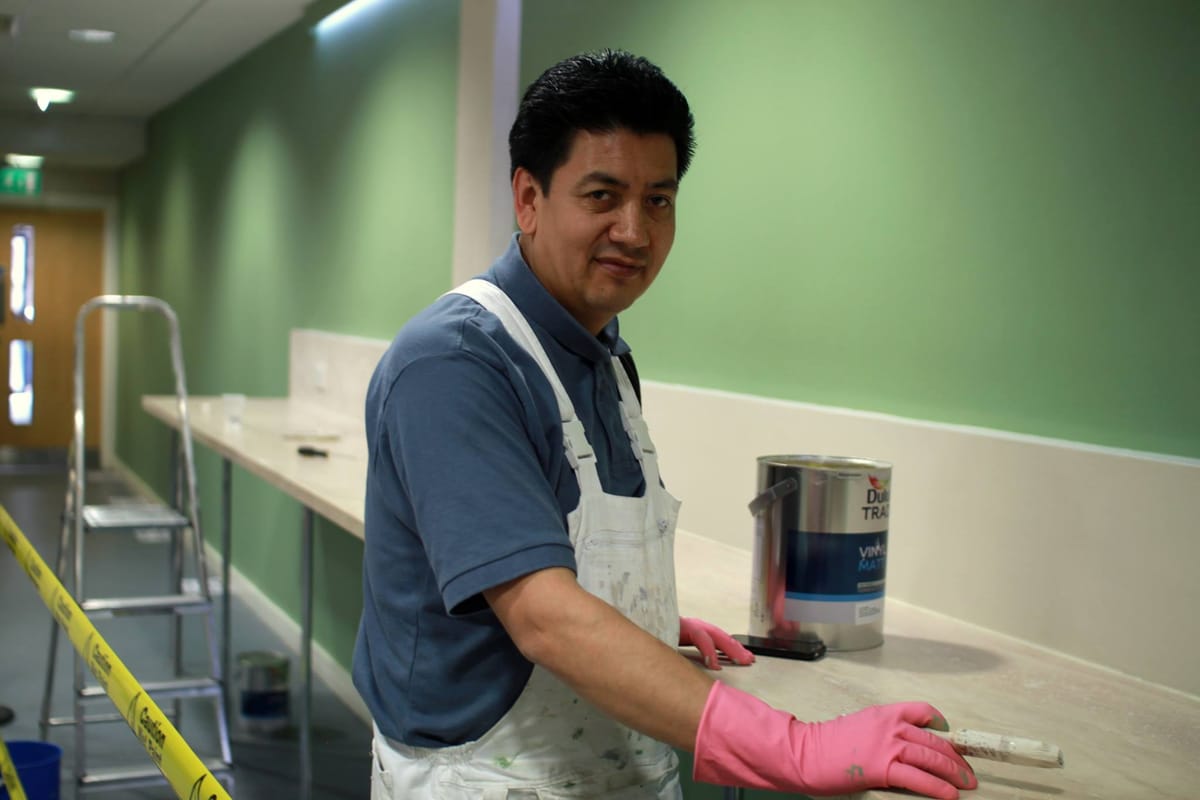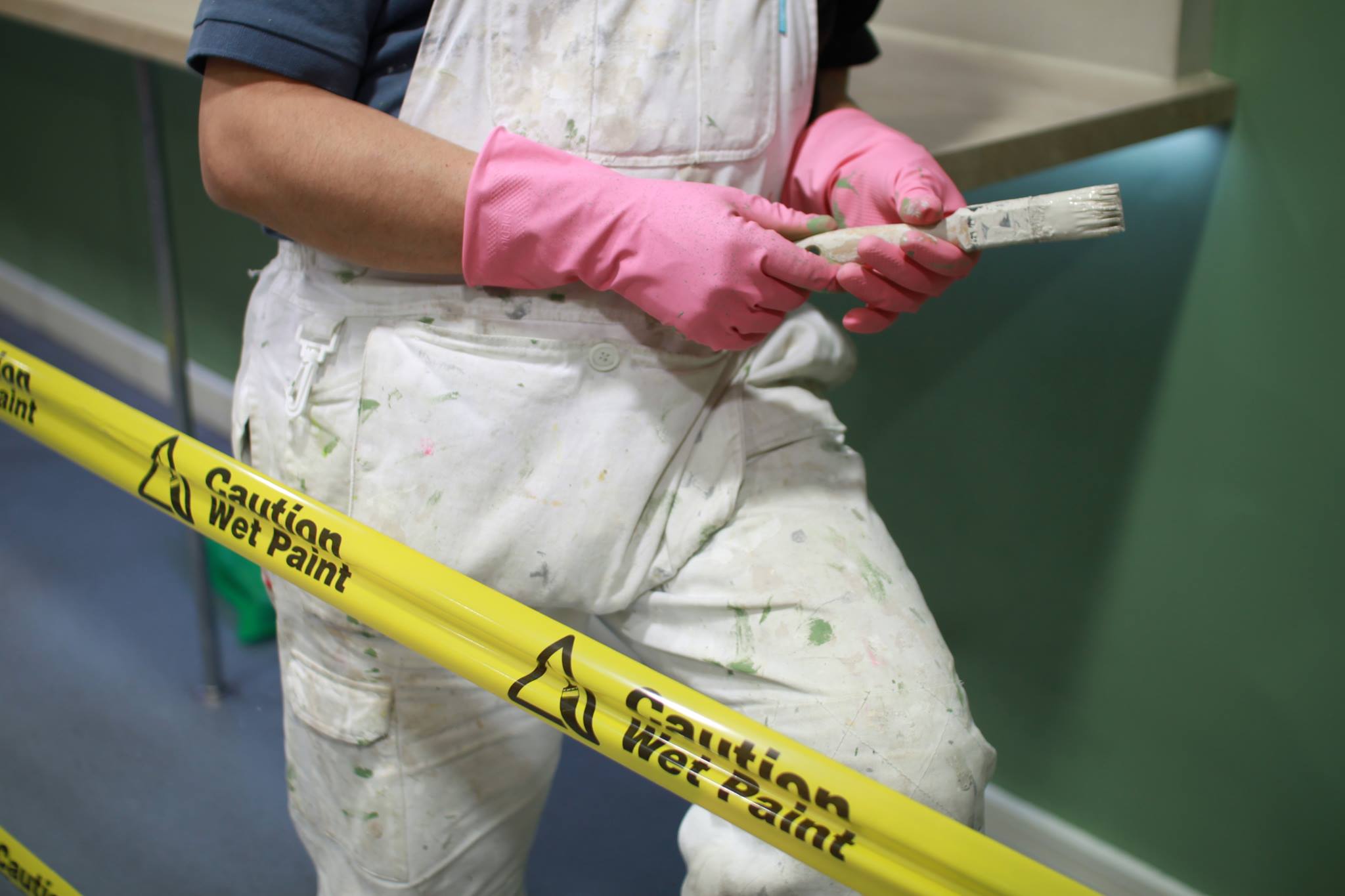Struggle to End Outsourcing Makes Crucial Win

Mel Plant, BA Arabic and Turkish
The story of the Justice for Cleaners campaign at SOAS is one of broken promises and continued resistance. Running for 9 years, the campaign has sought workers’ rights for the cleaners of SOAS, who have been outsourced to a succession of different companies since the early 1990’s.
Since 2006, the cleaners, largely migrant workers of Central or South American backgrounds, have been demanding the same basic workers’ rights afforded to those who are employed directly by SOAS.
Those who do the hard work of cleaning our bathrooms, classrooms and union spaces have long been directly affected by unethical outsourcing companies and the neoliberal university complex which contracts such companies.
The workers united under the Justice for Cleaners campaign are employed by outsourcing company ISS, a multinational corporation which describes itself as ‘one of the world’s leading facility services companies.’
ISS operates in over 75 countries globally, supplying cleaning, catering, security and other facility management services. The company is not only controversial for its treatment of the SOAS cleaners, but also for involvement in illegal Israeli settlements.
ISS owned a security company, employing 1800 people in illegal settlements in the West Bank and Golan Heights, until 2014. Aside from the company’s now defunct security links to Israeli occupation, ISS still cooperates with Israeli settlements through small-scale cleaning and catering services (with 13 workers in the West Bank and 5 in the Golan Heights). ISS now claims that they will not expand business within settlement industries.
ISS is not the only company with questionable ethical practices that SOAS is guilty of contracting. The university also contracts the multinational company MITIE for ‘facility service management’ purposes. MITIE is involved in immigration detention centres across the UK, from which have come continuous allegations of unfair treatment and abuse of detainees.
In 2012 the Students’ Union held a referendum which determined that 98.2% of the SOAS community (that participated) believed that the cleaners should be brought in-house. Bringing the cleaners in-house is a demand which has been reiterated over the past 9 years by the Justice for Cleaners campaign.
In 2008 the campaign successfully campaigned to be granted the London Living Wage. This was followed by the campaign winning sick pay, holiday pay and pensions for the cleaners. However, ISS has constantly threatened to withdraw the basic workers’ rights that they have granted over the past 7 years and introduce zero-hour contracts.
Members of the Justice for Cleaners campaign have faced intimidation and disciplinary action both from ISS and SOAS management. Some cleaners have privately described in meetings the intimidation tactics of ISS bosses, whilst notable members of the campaign such as Counsuelo Moreno and key ally and UNISON representative Sandy Nicoll have faced disciplinary action at the university level.
In 2009 this victimisation and intimidation came to a head with the deportation of 8 cleaners. Members of the campaign were called in for an ‘emergency meeting’ in the DLT, where members of the UK Border Force agency appeared and proceeded to deport the 8, including Luiza who was 6 months pregnant at the time of the immigration raid.
Despite official SOAS statements that the university had no choice but to engage with the deportation process, members of the Students’ Union still hold that the view that the university is directly complicit with unethical border practises which were put in to due course because of the union organising of the cleaners.
Speaking in an interview with the website ‘Critical Legal Thinking,’ Luis Armando Ojeda commented on the corporate atmosphere of working for ISS in SOAS: ‘we are called the invisibles here at SOAS. I have been working for 18 years, I have colleagues working here more than me, 20 years, 22 years. For us — in my case — I feel very badly, because I think, I have given everything to SOAS; my youth, my physical health and energy, my knowledge.’
In an environment which dedicates itself to regional studies and is often praised as a radical educational institution, the Justice for Cleaners campaign finds itself in stark contrast to the institutional rhetoric used by the university in its advertising campaigns.
University management claims that ‘in-sourcing’ the cleaners would cause them a massive financial loss, repeatedly stating that bringing the cleaners in-house is not financially viable despite its ethical value.
However, the university has never provided clearly documented financial figures to this effect. The university in past months has had a rough history with facts and figures, with university officials such as Laura Gibbs and Valerie Amos claiming that SOAS is running a deficit, despite the fact that the university currently has a surplus of £1 million and has only run a deficit once in the past 7 years.
Ezequiel Matias Kramer Zalazain, another campaign member, reiterated statements that have been made by Students’ Union Co-Presidents on the neoliberal nature of the university in an interview with ‘Critical Legal Thinking’ in 2014: ‘when SOAS started to invest £33 million in the North Block of Senate House, we see that none of this money is invested in the people; not the lecturers, the tutors, the cleaners. They are investing in the marketization of education.’
Students campaigning against the ‘marketization of education’ and its manifestation in planned course cuts at SOAS occupied the Brunei Suite, the university’s main commercial space, in early October.
Controversy has surrounded the occupation and the actions of the ‘occupiers,’ especially in regard to direct actions such as the ‘shutdown’ of SOAS in response to the suspension of Sandy Nicoll and allegations of racism within the space. However, negotiations between senior management figures and members of the occupation have resulted in a crucial agreement for the struggle to end outsourcing.
Laura Gibbs, SOAS Registar, and Chris Ince, SOAS Secretary, have signed off on an agreement in conjunction with members of the occupation that the Justice for Cleaners campaign and its allies will be able to cost bringing the cleaners in-house and have this costing considering as part of the outsourcing contract tendering renewal process this December.
Management has agreed that ‘the school will work with SOAS UNISON branch to commission the Association of Public Service Excellent (APSE) to cost an in-house option for facilities management, and to ensure that APSE has full access to all necessary information.’ The school also agreed to not rule out bringing other facilities management staff in-house until contracts have been signed.
This is a crucial win in the process to end outsourcing, allowing ‘in-sourcing’ to gain a legitimacy within the corporate processes of the university. Gibbs and Ince also agreed that Co-President for Democracy and Education Hannah Slydel will chair an Ethics Panel to evaluate the outsourcing contracts proposed.
The composition of this Ethics Panel takes into account student and staff concerns about the undemocratic nature of the university, best vocalised by the Democratise SOAS campaign. No more than half of the Ethics Panel should be members of the Executive Board, and it should consist of 1 student and several academics to be appointed by Slydel. Companies contracted are obligated to comply with the Ethics Frameworks decided by the Ethics Panel.
Despite student concerns and the school claiming that it does not recognise occupation as a ‘legitimate form of protest,’ the financial pressure the occupation has put on SOAS management has led to a crucial gain for the Justice for Cleaners campaign.
Gibbs and Ince have recognised that the ‘costs of the tender process’ will include the ‘impact of disruption relating to the outsource model,’ meaning that the occupation as a form of protest has instigated a change in management’s thinking.
The Facilities Management Project Board will be holding an open meeting on Facilities Management for staff and students to contribute their views on Monday December 7th at 4pm in the DLT.
Photos courtesy of ‘Humans of SOAS.’






